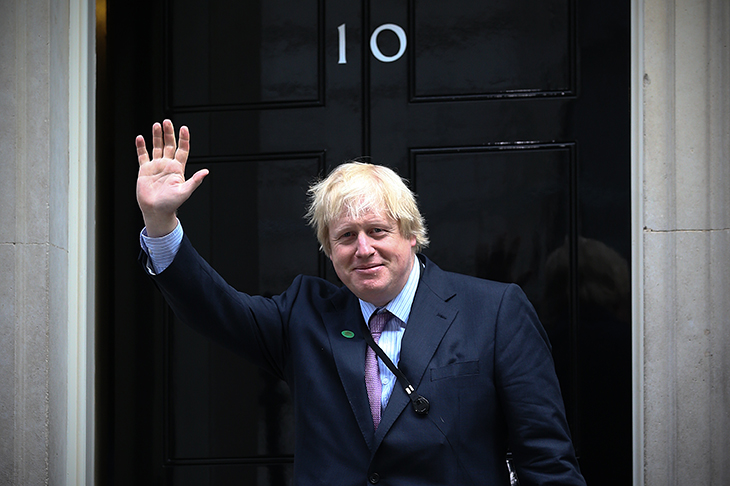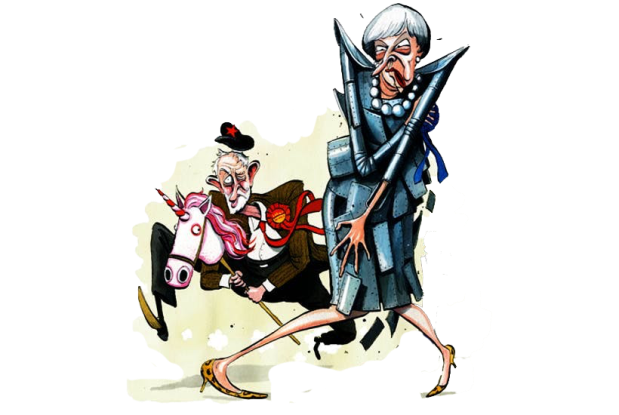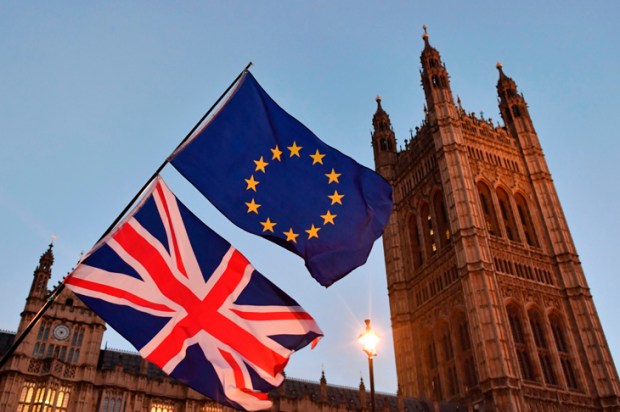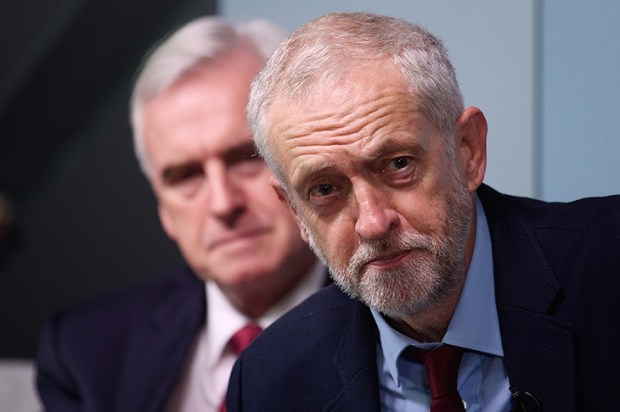Every Friday at 6 p.m. government aides are summoned to No. 10 Downing Street for a meeting with Dominic Cummings, Boris Johnson’s right-hand man. Here they are plied with alcoholic beverages, updated on the latest government messaging and given instructions for the week ahead. Such meetings seldom happened under the old Theresa May regime: Fridays were a bit of a non-event when ministers were in their constituencies and aides worked hard right up to lunchtime. The new end-of-week meeting register means that is no longer an option.
At the most recent meeting, a handful of aides were singled out for good behaviour. Their achievement? Reporting the minister they work for to No. 10 for going off message. ‘You know who you are,’ said Cummings approvingly. The message to the advisers was clear: you might have been hired by a cabinet member, but Downing Street is the boss.
Thanks to Cummings, the government is being rewired. Under Theresa May, there was a kind of anarchy: the Prime Minister was openly defied by her ministers and mocked by their aides. While Boris Johnson, who presided over a kind of creative anarchy while at The Spectator, had been expected to bring back some order, there was talk of a freestyle approach. Instead, it has been more boot camp than hippie commune. The aim is to centralise power and restore authority and discipline to Downing Street.
The government is in campaign mode. All leave has been cancelled and No. 10 staff are expected to work 11-hour days at a minimum: daily meetings at 8 a.m. and 7 p.m. reinforce this point. Ministers are summoned to regular no-deal preparation meetings. The number you have to attend depends on your seniority. Tory HQ is going through an overhaul and its ‘attack unit’ is being strengthened. Talks are under way about how to expand quickly if a snap election is called. The latest plan is to enlist staff from right-wing think tanks on secondment.
August used to be the month when HM’s Opposition would pump out announcements that few would read. But No. 10 is now using it to push their policy priorities and rehearse topics that would feature heavily in any early election campaign. Brexit, the NHS, law and order, education: each of the Tories’ political liabilities is being addressed. A strict timetable for government policy announcements — known as ‘the grid’ — is in operation. As in the Blair era, no announcements are allowed unless they are ‘on the grid’.
Cummings is at the top of the No. 10 power structure, but his influence goes much further. He ran the Vote Leave campaign with discipline and is now doing the same for both the government and the Tory party. He sits alongside Sir Eddie Lister, who had been expected to be chief of staff in the Prime Minister’s private office. While Cummings takes charge of the domestic narrative, Lister is focused on international projects, including this month’s G7 summit.
Depending on who in parliament you speak to, Cummings is either the Brexit messiah or devil incarnate. So far, he has succeeded in delighting Brexiteers and horrifying Remainers in equal measure with comments on how he plans to deliver Brexit ‘by any means necessary’. While many civil servants may not like the message, a number speak of their relief at having clear direction. ‘I finally know what I’m meant to be doing,’ says one. Under Cummings are the aides he relies on most: Lee Cain, his director of communications, Oliver Lewis (nicknamed ‘Sonic’) a Vote Leave alumnus, David Frost, the Europe adviser and Munira Mirza, who heads up policy. In another era, this would have been the inner circle advising the Prime Minister. But its direct influence extends across every Whitehall department, thanks to Cummings’s direction of every adviser.
Deprived of holidays, government aides are now busy with extra tasks given to them by No. 10. Media advisers are asked to come up with three story ideas by every Thursday lunchtime. All aides were recently given 48 hours to investigate their department’s level of no-deal planning and report back.
Not all of them like this. The instruction to keep a close eye (or ‘snitch’, as one aide puts it) on their boss has been likened by some staff to behaviour worthy of secret police, but others are trying to see the bright side. ‘Under the old regime you never knew what was actually going on in government,’ says one aide. ‘I’ve now lost count of the number of meetings I’ve had in No. 10.’
Ministers, too, speak of a renewed sense of purpose. Under May, there was a reluctance by the government to be frank about Brexit aims for fear of upsetting one half of the party. The new government has no such qualms. At a recent no-deal Brexit committee the recently promoted Kwasi Kwarteng asked for clarity on the Brexit strategy. There is little chance of negotiating a new deal with the EU by 31 October, he said, which either means that it’s no deal or that more time would be required — would it be the latter? Michael Gove replied that there were two leadership contenders: only one said the UK would leave by October 31 ‘do or die’, and he won. That’s the policy. Secretaries of State were given further direction this week, with each receiving a personal letter from the Prime Minister detailing objectives for their department, both on Brexit and domestic issues.
Some tire of the relentless schedule. ‘I haven’t had a proper break for over a year,’ complains one minister. Others say they are motivated not by enthusiasm but fear. ‘There’s a more sinister feeling,’ sighs one member of government. ‘They give the impression of being more strict and there’s a sense that Dom would rip your head off if you broke the rules.’ But for most Tories this regime is acceptable — even welcome — because it stands a chance of getting Brexit done. A mission on which all of their fates depend. As one Tory MP tells me: ‘I am not throwing my toys out of the pram, as I may be losing my seat in three months.’
The Conservative party is at battle stations and willing to take orders — at least until the 31 October deadline. But then what? Aides believe that things will relax after Brexit is delivered. But inside No. 10 a disciplined and centralised government is seen as the preferred option in general. After all, once they’ve taken back control, they may be reluctant to hand much back.
Got something to add? Join the discussion and comment below.
Get 10 issues for just $10
Subscribe to The Spectator Australia today for the next 10 magazine issues, plus full online access, for just $10.
You might disagree with half of it, but you’ll enjoy reading all of it. Try your first month for free, then just $2 a week for the remainder of your first year.















Comments
Don't miss out
Join the conversation with other Spectator Australia readers. Subscribe to leave a comment.
SUBSCRIBEAlready a subscriber? Log in